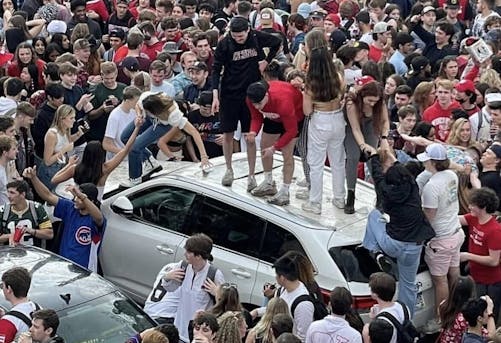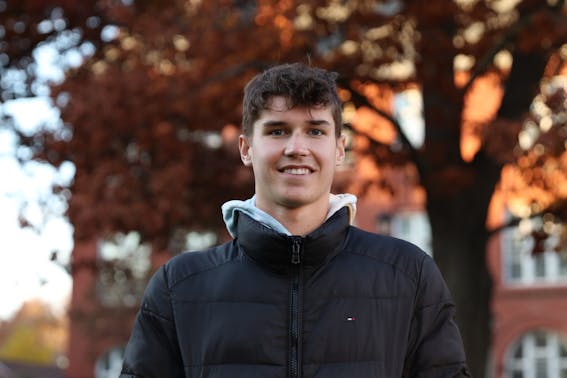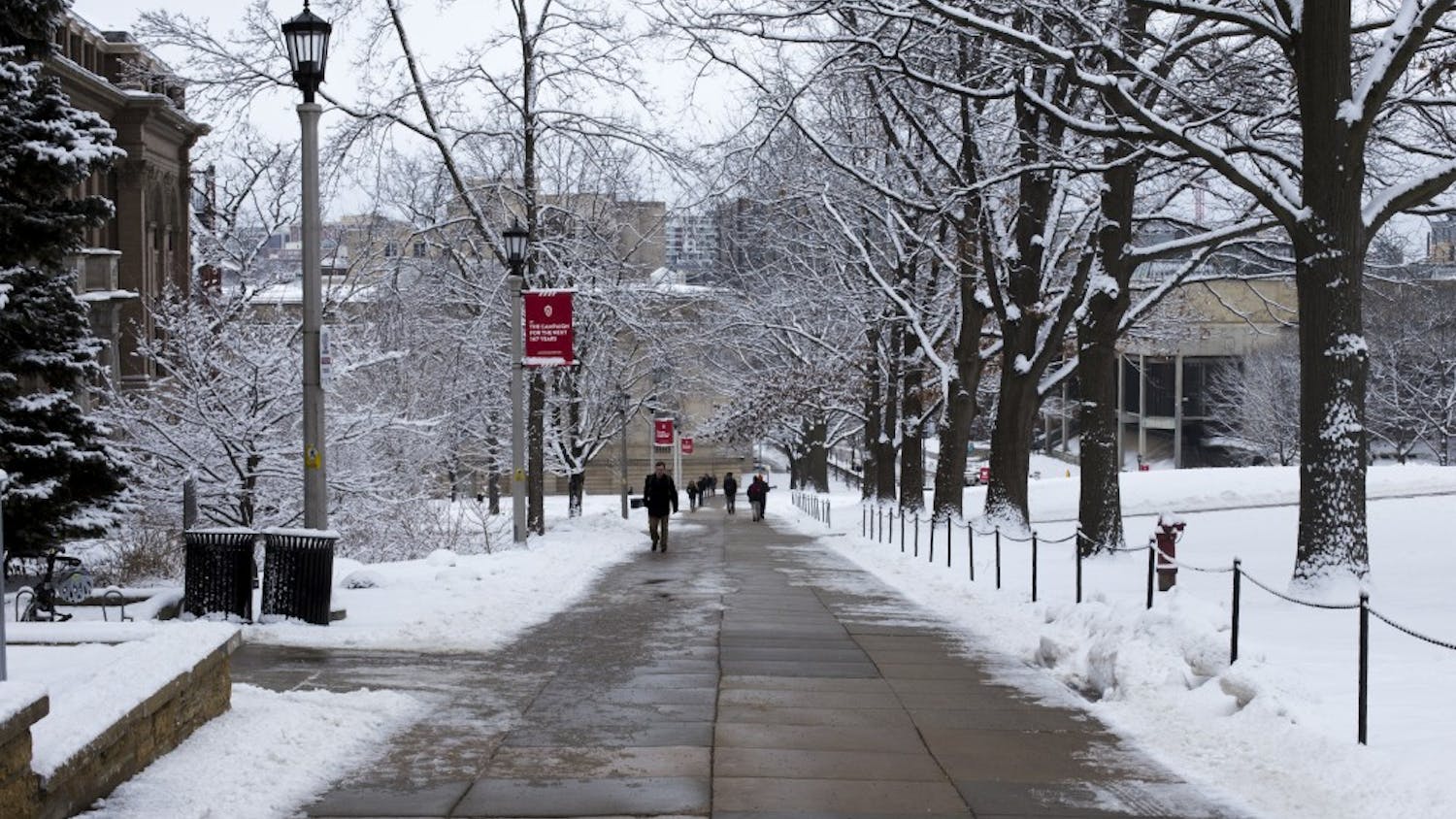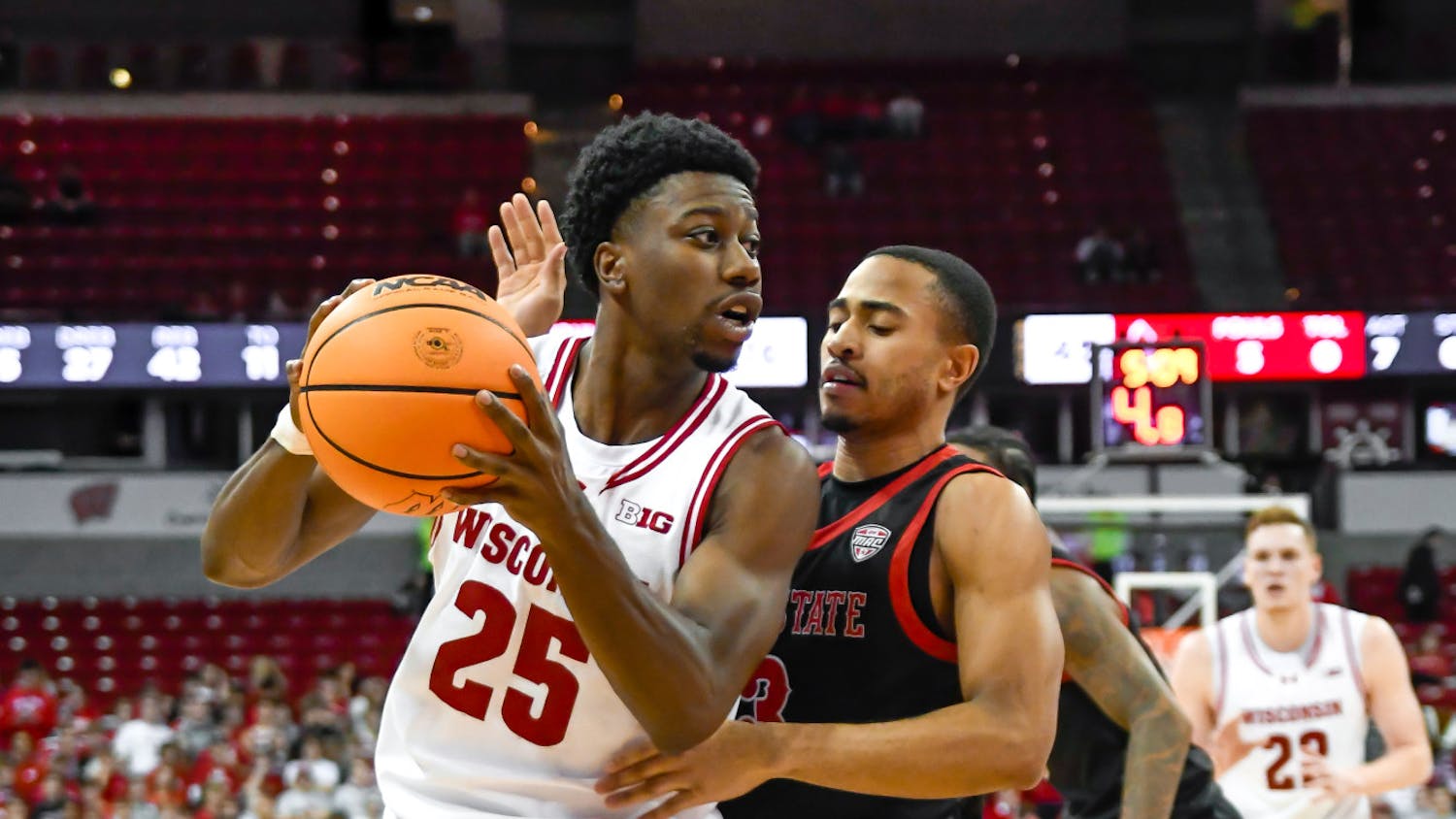A few days after the University of Wisconsin-Madison’s Chancellor and the Madison Police Department urged students to follow county health guidelines during gatherings, five students were photographed standing on top of a damaged white SUV surrounded by an unmasked crowd.
The Instagram account that posted the photo, Badger Barstool, posted other photos of the car — its windshield smashed in and hood dented and covered in muddy footprints as smiling college students continued to party.
Barstool Sports is a multimillion-dollar sports and pop culture digital media platform with campus-specific affiliates such as Badger Barstool and Wisco Chicks. The outlet’s UW-Madison affiliates serve as a reminder of an exclusionary culture for some campus community members despite attracting over 200,000 followers across social media platforms.
Despite the scope of the accounts on campus, some students have concerns about their impact.

“I feel like Barstool is such an example of this dominant culture that a lot of students at UW — specifically white students — think there is,” said UW-Madison senior Gracie Regala about the sports and pop culture digital media company’s campus affiliates. “[Barstool] pushes this dominant narrative that all students at Madison are partying all the time.”
The Mifflin Street Block Party, an annual event hosted near the end of the spring semester, serves as a key manifestation of this sentiment according to Regala.
Often met with criticism regarding its effects on the greater Madison community, the block party received increased scrutiny last year as it occurred amid the COVID-19 pandemic, raising concerns about the spread of the virus as thousands of students attended.
Videos and photos posted to Badger Barstool such as one in September 2020 that showed a gathering of students in violation of university health protocol in addition to those depicting the Mifflin Street Block Party have provoked worries about health and safety in the campus community.
Badger Barstool showcased the event, posting videos and pictures of Madison Police Department officers playing beer pong with partygoers, the vandalism of a community member’s car and the general scope of the event, describing it as the “best weekend of the year.”
In response to the party, campus leaders such as the UW-Madison BIPOC Coalition, a student activist group committed to diversity and inclusivity on-campus, issued a statement describing their frustrations and calling for Badger Barstool to “be held accountable for the promotion of [the] event and its subsequent damage.”
Regala reiterated this view, describing the event as an expression of whiteness as a shield from accountability.
“I feel like [Mifflin] perpetuated this narrative of whiteness being able to get away with whatever and this like ‘Oh it’s fun because we’re drinking,” said Regala about the block party and its attendees.
Since its creation in 2003, claims of misogyny and hyper-masculinity as well as racism have emerged about the affiliates’ parent company, Barstool, and some of its employees. Last month, several women also came forward stating that Barstool’s founder Dave Portnoy engaged in aggressive sexual behavior.
UW-Madison junior and Badger Barstool Tik Tok administrator Al Purves declined to comment on specific concerns about the UW-Madison affiliate accounts’ role in the Mifflin Street Block Party, highlighting his belief that the accounts get “a lot of bad rep even though none of [the administrators] ever intend for anything to be hurtful or bad.”

“We’re all college kids and over the past year and a half some things have become really controversial, or people get mad at things really easily, but none of that comes out of anger or hate,” Purves explained.
Regardless, some students remain disillusioned with the accounts and their role at UW-Madison.
A UW-Madison student and employee at UW Athletics who asked to remain anonymous described their frustrations with the accounts, emphasizing that the athletic department actively avoids associating itself with Barstool Sports and their UW-Madison affiliates.
“In our department, specifically, we make sure that we’re not interacting with Barstool,” said the UW student and employee, describing the accounts’ posts as “people doing stupid things they deem cool. It just doesn’t set a good image for us as a school.”
Students like Regala remain concerned with what the accounts mean for the broader campus culture, especially when considering UW-Madison’s largely white student population and the drinking and party culture on campus.
“I think that Barstool is just a symptom of this greater campus institutionalized culture,” Regala said.
UW-Madison’s culture, as explained by the director and founder of UW-Madison’s Digital Studies program Rob Howard, can accelerate through the social media accounts that depict it.
“It’s an engine and it fires up people,” Howard said about the Badger Barstool and Wisco Chicks accounts. “If somehow, we could miraculously end the media, I still think people — even more people — would be down there drinking on game days.”
“That’s part of the culture, you cannot say the media is to blame,” continued Howard.
This culture and the media that depicts it serve as a barrier to connection to campus for Regala, creating a feeling of isolation at UW-Madison.
“I have found my own way to exist on-campus, but I definitely feel like it creates a distance,” Regala said. “It just makes me feel like a lot of my peers don’t recognize and see the way that the dominant narrative affects, specifically, students of color, but also just a lot of different marginalized identities.”
In Purves’ view, Badger Barstool demonstrates the “authentic side of a lot of college students.”
“I think Badger Barstool, in general, does a good job of capturing what people can be like in a funny matter,” said Purves. “We’re really just here to showcase what people send us and the funny side of campus.”
Yet for students like Regala, UW-Madison’s Barstool Sports’ affiliates instead serve as a reminder of an exclusive culture at UW-Madison — both on and offline.
“I hope that one day the culture of UW-Madison just feels like it’s rich in that there’s a lot of different ways you can experience the school,” Regala said.
Ultimately, Regala hopes that Badger Barstool and Wisco Chicks acknowledge and address the ways in which the brand they have created impacts campus culture.
“It doesn’t really make sense to have this dominant narrative or this dominant culture,” said Regala. “It’d be cool if eventually there’s just more recognition of different ways to exist on campus.”
Sophia Vento is a former editor-in-chief of The Daily Cardinal. She previously served as the college news editor. She has covered breaking, campus, city, state and sports, and written in-depth stories about health, culture and education. She previously interned with the Milwaukee Journal Sentinel. Any newsroom would be lucky to have Sophia on staff. Follow her on Twitter at @sophiasvento.






